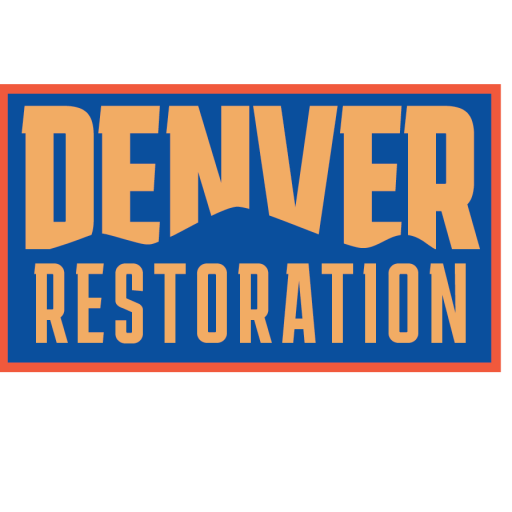Understanding Property Damage Claims
Being able to navigate the complexities of property damage insurance claims is crucial in ensuring that homeowners, property managers, and business owners get the fair handling they deserve. It is about grasping the intricacies of the regulations surrounding property damage claims and the responsibilities of the insurance companies involved.
Key Elements of Insurance Claims
The claims process takes into account a few critical factors:
- Damage Assessment and Estimation
- Restoration Techniques and Equipment
- Environmental and Health Safety
- Customer Communication and Crisis Management
Let’s delve deeper into these factors and understand their significance in the claims process.
Damage Assessment and Estimation
After property damage incident like fire, water or mold outbreak, the initial step is to conduct a comprehensive damage assessment. This involves identifying the extent of the damage, the cause, and compiling an accurate estimation of repair costs. It’s essential that this process is thorough and fair, ensuring that homeowners aren’t shortchanged during the claim settlement.
Restoration Techniques and Equipment
Once the assessment has been completed, the next step involves implementing appropriate restoration techniques using advanced equipment. These techniques not only play a significant role in the recovery process but also influence the overall amount to be claimed from the insurance company.
Environmental and Health Safety
Restoration efforts after property damage should also take into account environmental and health safety. To ensure compliance with the law, professional restoration companies must abide by certain standards to maintain a safe environment during and after the reconstruction process. This can impact the overall insurance claim.
Customer Communication and Crisis Management
Another vital component of the claims process has to do with communication. From initial reporting of the damage to claim settlement, maintaining open and transparent communication with the insurance company can help expedite the claim process and ensure a fair settlement.
How Is Fair Insurance Handling Achieved?
Fair insurance handling is not just a term; it’s a right granted by regulations such as the Fair Claims Settlement Practices Regulations. These regulations stipulate that insurance companies must promptly acknowledge claims, provide assistance to claimants, and avoid unreasonable delays in claim processing.
Benefits of A Fair Approach to Insurance Claims
A fair approach to insurance claims benefits both the insurers and the insured. Insurance companies that observe fair practices build trust with their policyholders, fostering long-term relationships. On the other hand, policyholders receive the necessary compensation to restore their damaged property fully. This fair solution to property damage recovery can help individuals bounce back faster after a disaster.
Despite the regulations, navigating insurance claims can be tricky. Claimants often face hurdles such as unresponsiveness, delays, underpayment, or even outright denials. It is crucial to understand your rights in such situations and ensure that you’re getting the fair treatment you deserve.
Legal Support
In some instances, you may require legal intervention to ensure fair handling of your claim. Legal professionals who understand the intricacies of property damage claims can offer valuable assistance, particularly when disputes arise concerning the claim settlement. The key is to seek out knowledgeable counsel that can guide you through the process and protect your interests.
As you navigate post-damage recovery, arm yourself with knowledge and resources to ensure a fair handling of your insurance claims. This way, you can focus on restoring your property to its former glory and moving forward.
Understand and Use Your Policies
Understanding your insurance policy is crucial in making a successful claim. Insurance policies are contract agreements, and they dictate what damages are covered and to what extent. It is essential to familiarize yourself with your policy’s specifics, including your coverage limits, deductibles, and exclusions.
For example, certain types of water damage may not be covered under standard policies, requiring additional flood insurance. Similarly, damage resulting from poor property maintenance may be excluded from your coverage. By understanding these details, you can have realistic expectations about your claim’s outcome and ensure you’re adequately covered in the future.
Paperwork and Documentation
Documenting the damage is an important part of the insurance claims process. This involves taking photographs or videos of the damaged property before any restoration efforts. It also includes keeping a detailed inventory of destroyed or damaged items, including their age, original cost, and replacement cost.
Moreover, you should keep a record of all communication between you and the insurance company, including phone calls, emails, letters, and in-person meetings. This documentation can prove invaluable if disputes arise about the claim.
Working with a Public Adjuster
Sometimes, homeowners, property managers, or business owners choose to engage the services of a public adjuster. These professionals, who work independently from insurance companies, can help you complete and submit claims forms, arrange for damage assessments, and negotiate with the insurance company on your behalf.
A public adjuster can provide valuable assistance, particularly if you’re unfamiliar with the insurance claims process or if your claim is complex. However, as with any professional service, it’s important to research and choose a reputable and experienced adjuster.
Tips for a Successful Claim
To increase your chances of having a successful and fair insurance claim, consider the following tips:
- Report the damage promptly: As soon as you notice damage to your property, it’s crucial to report it to your insurer as early as possible. Delaying can potentially complicate the claims process.
- Be honest and accurate: When reporting the damage, provide accurate details. Any discrepancies could result in delays or even denial of your claim.
- Keep receipts for repair work: If you’ve had to do any emergency repair work, keep all the receipts. These costs can be factored into the final claim.
- Temporarily relocate if necessary: If your home is unsafe to live in due to severe damage, your insurer might cover your additional living expenses (ALE) as part of your claim.
Role of Restoration Companies
Restoration companies play a crucial role in assisting with insurance claims. By effectively repairing and restoring damaged properties, they can help to reduce the financial impact of a loss.
Moreover, many restoration companies are experienced in dealing with insurance claims, helping to streamline the process and ensure a smooth process. For example, after a water damage incident, a restoration company such as Denver Restoration can use infrared scanning technology to accurately assess the extent of the damage, providing a detailed report for your insurance claim.
Conclusion
Filing an insurance claim after property damage can be a daunting task. However, with thorough preparation, sound knowledge of your insurance policy, and the right type of professional assistance, you can navigate the process successfully.
Remember, ensuring a fair claim process is not only your right but also your responsibility. By being proactive in understanding and navigating the claims process, you can ensure that you receive the compensation you’re entitled to, allowing you to restore your property and resume your normal life as quickly as possible.
While the road to full recovery can be hard, arming yourself with the right knowledge and strategies can help you overcome the challenges.

